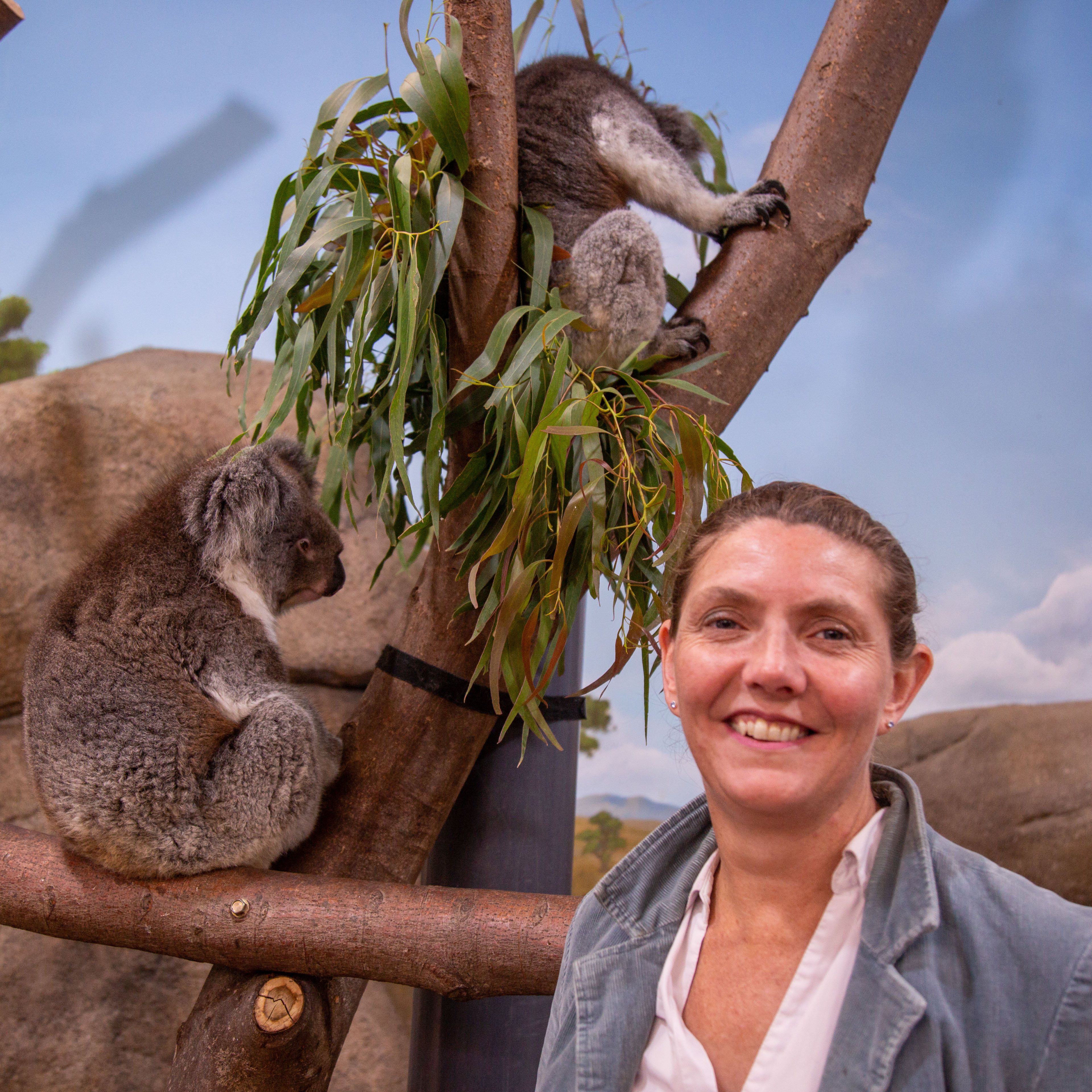Monday, 17 February 2020
Scientists have uncovered some of the reasons behind why koalas from different parts of Australia suffer from serious diseases and others don’t, which will help them in their mission to help save this vulnerable species.
There are an estimated four hundred thousand koalas in Australia but in 2016 the species was upgraded from ‘least concern’ to ‘vulnerable’ on the IUCN Red List of Threatened Species. Koala numbers vary heavily depending on where they live.
The vulnerability of this species has been worsened by the recent bushfires sweeping parts of Australia, which only heightens the importance of the research being done to protect them. It is currently estimated that around 40,000 koalas have died as a result of the fires (so far).
Ongoing research led by Dr Rachael Tarlinton and Professor Richard Emes from the University of Nottingham’s School of Veterinary Medicine and Science, working with collaborators at the Universities of Queensland and Adelaide in Australia (including PhD students Nishat Sarker and Jessica Fabijan), has been looking at how a koala retrovirus called KoRV (which integrates into the koala genome) affects different populations of koalas.
They found that koalas in Queensland in the northern part of the koalas range are in decline not just due to loss of habitat, but because of diseases which are highly likely to be linked to KoRV, including leukemia and lymphoma.
The koalas in South Australia have a much lower incidence of disease. A study last year by the team confirmed that the southern koalas do in fact have the KoRV virus but the version they have is missing a big piece of its genetic material.
In this latest study published in Scientific Reports, the team have been able to put numbers to the disease differences between populations of koalas in different areas and the genetic reasons behind this.
This latest discovery could be the next step in helping to protect the koala population as a whole by informing future breeding programmes in Australia.
 Dr Rachael Tarlinton
Dr Rachael Tarlinton
Dr Tarlinton said: “This information is important for koala managers to be able to make good decisions about which animals are suitable for breeding and translocation programmes if they don’t know the actual impact of the health and genetic problems in different areas. Given the current bushfire crisis this is even more important that it was when we began this work several years ago.
“It’s about making sensible decisions. There will be a massive temptation to move animals between different areas right now to restock burnt forest but this may not be the best thing for the species as a whole if we introduce disease problems to areas where they weren’t before. The good news story for the southern populations is that they do indeed have a lower incidence of retroviral induced disease.”
A full copy of the paper can be found here.
Story credits
More information is available from Dr Rachael Tarlinton at rachael.tarlinton@nottingham.ac.uk
Notes to editors:
About the University of Nottingham
Ranked 97 in the world and 17th in the UK by the QS World University Rankings, the University of Nottingham is a founding member of Russell Group of research-intensive universities. Studying at the University of Nottingham is a life-changing experience, and we pride ourselves on unlocking the potential of our students. We have a pioneering spirit, expressed in the vision of our founder Sir Jesse Boot, which has seen us lead the way in establishing campuses in China and Malaysia - part of a globally connected network of education, research and industrial engagement.
Nottingham was crowned Sports University of the Year by The Times and Sunday Times Good University Guide 2024 – the third time it has been given the honour since 2018 – and by the Daily Mail University Guide 2024.
The university is among the best universities in the UK for the strength of our research, positioned seventh for research power in the UK according to REF 2021. The birthplace of discoveries such as MRI and ibuprofen, our innovations transform lives and tackle global problems such as sustainable food supplies, ending modern slavery, developing greener transport, and reducing reliance on fossil fuels.
The university is a major employer and industry partner - locally and globally - and our graduates are the third most targeted by the UK's top employers, according to The Graduate Market in 2024 report by High Fliers Research. Alongside Nottingham Trent University, we lead the Universities for Nottingham initiative, a pioneering collaboration between the city’s two world-class institutions to improve levels of prosperity, opportunity, sustainability, health and wellbeing for residents in the city and region we are proud to call home. More news…